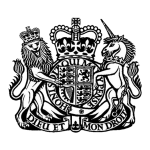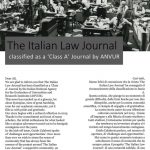
The conflict between liberty and security
From Milan to London, no one denies the necessity of the endless lockdowns and tiers and regulations that have characterised this Covid-19 blighted year. Well, some do, and they regularly stage protests in cities across Europe against lockdowns and imposed isolation periods and the enforcement of mask-wearing and social distancing and all the other impositions upon our social lives that have been well, crucial for the actual saving of lives. Personally, however, I’d assert that these people are what are commonly referred to as cranks, and I’m certain that many people, particularly hospital workers and the relatives of Covid victims, would agree. With numerous anti-vaccine, anti-lockdown, and anti-government protests being staged across Europe, it’s become difficult to keep up with the differences between the various groups. Yet what is the alternative to lockdown? “Herd immunity”? That practice of permitting the controlled spread of the virus among a population with the aim of achieving a significant percentage of immunity among the population, as practiced, for example, by Sweden, has been spectacularly debunked.
I note my concern with the importance of following the regulations, social distancing, and controlling the spread of this infectious virus because what I am about to say is somewhat defiant of the way in which the UK and other national governments have handled this pandemic, in terms of the way the restrictions that they have imposed upon the population for the best part of a year have been implemented. In fact, I’d go as far as to assert that it is a civil duty to debate the conflict between the rights of citizens to freedom and liberty and the protection of public health. This discussion is vital in light of the extraordinary manner in which the United Kingdom government has enacted arguably repressive legislation containing extraordinarily coercive powers within a very short period. Perhaps even more concerning is also the way in which this legislation and the regulations have been used by the UK’s police force, often in petty ways, and how, apart from a few newspaper articles here and there, this has been, for the most part, accepted by citizens without question.
However: the primary problem lies with the government that implemented this legislation, and which has, contrary to the British Constitution, completely bypassed the vital steps of parliamentary scrutiny of legislation, and in managing this, succeeded in enacting regulations restricting the freedom of citizens. The necessity of controlling the spread of Coronavirus should not be used as a justification for the potential illegality of this and the very real threat to British democracy that this poses.
For almost a year, the public has, through abject fear of the virus, accepted and respected strict limitations on their freedom. It is in such times of emergency that the absence of freedom becomes increasingly visible. Notable legal figures such as Lord Sumption have vehemently argued against the placing of such restrictions on our liberty.
This conflict has been argued for centuries by juristic philosophers from Aquinas, to Hobbes, to Agamben, on the fundamental conflict between the right of citizens to freedom and the importance of security. Thomas Poole, professor of law at the London Schools of Economics, has argued that the “rules laid down by the state are ultimately essential to our freedom”.
The absolute majority of the population are simply not sufficiently scientifically educated to be able to understand the evidence (and there is, in any case, substantial disagreement within the scientific and medical community); jurists such as Sumption argue that this is not a reason to blindly trust the government. Yet what choice do we have? Neither Sumption, nor any other legal scholar (and especially not a politician!) is likely to possess the definitive information enabling them to make the correct judgment on this; it’s also possible that the government itself does not possess this.
Furthermore, this is not only a scientific and medical issue but also a cultural and economic one: Sumption has queried whether the harm that has resulted from the lockdown is perhaps worse than the disease. In light of the loss of life and the misery this causes for the ones left behind, that’s quite a difficult point to argue. Nevertheless, it must be asked. Currently, job losses are soaring, and the immensity of the economic fall out of the Covid-19 lockdowns has not yet even begun to be understood. I have no idea what the alternative to locking the country down and imposed isolation is if this virus is to be combatted; however, that’s not to say that the legislation imposed without the necessary parliamentary scrutiny is not in itself a form of coercion that must be examined.
The UK government and legislative coercion: governmental misuse of the Executive
It is not an understatement to assert that the UK government has used Covid to implement some of the most coercive legislation that has ever been attempted, and which the police have enthusiastically enforced. This legislation controls the lives of all UK citizens, in both the private and the public spheres; it controls where they can go, what they can do, and when they can do it. It controls with whom they can meet, and where, and even what they can do in the privacy of their own homes; isolation has required citizens to be placed under a form of what is, essentially, house arrest, for weeks at a time. And all of the legislation that governs this was passed without any of the required parliamentary scrutiny. That’s worrying; it’s how authoritarian governments come to power.
Furthermore, this government had already established its disdain for the necessity of due process; this was established in R v Miller . Here, the court held that the government had misused the prerogative power to prorogue Parliament and that they had done this for the explicit purpose of ensuring the avoidance of the proper scrutiny of its Brexit proposals. The importance of parliamentary scrutiny was stressed, as the court stated that “the policies of the executive are subjected to consideration by the representatives of the electorate, the executive is required to report, explain and defend its actions, and citizens are protected from the arbitrary exercise of executive power” (2019: Para 46).
This government has previously and shamefully misused its executive power, and in the same attempt at concealment, it has rushed through key legislative acts in relation to Covid to ensure that they are not subjected to the necessary parliamentary scrutiny. A key example: The Coronavirus Act 2020: this grants the government huge powers, and it enacted this extensive legislation despite the fact that the Civil Contingencies Act 2004 and the Public Health Act 1984 both already contain powers necessary for public health emergencies, as does the Public Health (Control of Disease) Act 1984, specifically Section 45 C (1). The reason for which the government chose not to use these emergency powers and instead implemented new ones is that they can be used only for a limited time before parliamentary scrutiny is required.
Certainly, lockdown is a necessity; the spread of the virus must be stymied. And yet; is the common good truly served when a government avoids the democratic necessity of parliamentary scrutiny in order to rush in legislation? This is not to say that the legislation itself should be disobeyed; certainly, it is crucial and exists for a reason – to protect us from Coronavirus. However, is it not concerning that the democratic structures have been so easily undermined and that we citizens are so willing to accept this and put our faith so blindly in government?
Key legislation
In March 2020, the Health Protection (Coronavirus, Restrictions) (England) Regulations 2020 were introduced under section 45R of the Public Health (Control of Disease) Act 1984; the 2020 regulations grant the police the power to detain anyone suspected of having COVID-19. The legislation contains the rules concerning movement restrictions and business closures, and permits the police to take the necessary action to enforce them. Crucially, the restrictions apply during the “emergency period” which began on 26th March 2020 and continues to the present day. Regulation 8 of the Restrictions grants the police the right to direct or remove a person to their place of living. The Regulations note that a person, during the emergency period, may only leave home if they have a “reasonable excuse”.
There is a striking lack of clarity around some of these reasons and definitions. Concern may be raised regarding the potential use of Section 24 of the Police and Criminal Evidence Act 1984 (PACE), which grants the police the power to make an arrest without a warrant. Rather worryingly, Section 110 of the Serious Organised Crime and Police Act 2005 means that this power applies to any offence; it is thus then applicable under the Coronavirus Regulations and Act. The police have therefore been granted extraordinarily wide powers, and an officer may arrest (i) anyone who is about to commit an offence, (ii) anyone who is in the act of committing an offence, (iii) anyone whom he has reasonable grounds for suspecting is about to commit an offence and (iv) anyone whom he has reasonable grounds for suspecting is committing an offence.
As regards arrest, Section 3(1) of the Criminal Law Act 1967 empowers the police to use such force as is reasonable under the circumstances. These statutes are therefore relevant to the Health Protection (Coronavirus, Restrictions) (England) Regulations 2020, specifically Regulation 9(7), which notes that Section 24 of PACE applies if the reasons for making an arrest include the maintenance of public health, or to maintain public order. Crucially, for an arrest to be necessary, it must be lawful; and Regulation 9 (7) of the 2020 Regulations has extended the definition of lawfulness. Certainly, the police have a hard job to do and some restrictions must be enforced. But do the police never exceed their powers?
Police overreach and absurdity
Examples of the police overreaching their powers in the pandemic abound. Drone surveillance, road checks, street questioning. Whilst some of this may arguably be necessary, the legislation itself is vague and the police advice is confused and varies from postcode to postcode. Police advice is often inaccurate and some individual police officers don’t appear to actually understand the legislation. In April 2020, a South Yorkshire police officer was recorded informing a family they were prohibited from entering their front garden; the incident was recorded by the police officer, who advised “You cannot come onto your front garden. I’m recording. You cannot come on your front garden (…) We have Government powers to ask people to stay indoors.” This is unacceptable and unsustainable in a democratic society; it completely undermines the rule of law.
A rather amusing yet somewhat terrifying breakdown of the absurdity of police overreach has been carefully documented by Tom Slater at The Spectator. Personally, I lost any naivety in this area quite some time ago.
Essentially, the 2020 Regulations do not provide any express power that allows the police the right to stop and question someone who they do not reasonably suspect is committed an offence, as confirmed by the Joint Committee on Human Rights. The police may ask questions, but there is no duty to provide any answers.
Human Rights Implications
Further to the undermining of democracy, there are implications for human rights, especially with regard to the control measures granted to the police. Whilst there is no question that the spread of Coronavirus must be controlled, the emergency measures enacted to deal with the virus do potentially breach human rights, specifically the European Convention on Human Rights (ECHR) as enacted in English law under the Human Rights Act 1998 (HRA). Section 6 HRA specifies that it is unlawful for public authorities to act in a way that is incompatible with the ECHR. The police powers regarding the right to isolate and remove potentially infectious persons, as well as the restriction of movement do potentially interfere with human rights, specifically the right to liberty (Article 5 ECHR), the right to private and family life (Article 11 ECHR), the rights of freedom of expression, with regard to gatherings (Article 10 ECHR) and the right of assembly and association (Article 11 ECHR). The restriction of these rights must both be legal and necessary, and pursue a legitimate aim; that is – they must be proportionate and made on the basis of the most recent scientific evidence.
Whilst the issue of proportionality is open to question, the science behind Covid is constantly developing as more is discovered about the disease. This combination, especially in light of the continuing, yet supposedly temporary nature of the emergency legislation and regulations, makes them difficult to challenge.
The bottom line is that the successive lockdowns implemented by the UK government (and European governments, with the wide powers granted to police, are the result of emergency legislation that was rushed in without parliamentary scrutiny precisely because the government did not wish it to be subjected to such examination. The reasons for this are not necessarily nefarious; the intention was most likely to ensure the saving of as many lives as possible from this new and strange disease.
Democracy has been subverted; perhaps only temporarily, and possibly with no long-term consequences. Yet there can be no exceptions to democracy; no exemption from government accountability and transparency. Once all this is over, there will, no doubt, be yet another inquiry.





